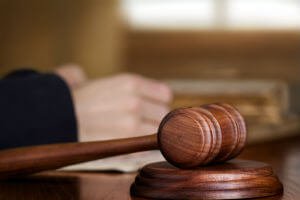Blog
The Reasonable Person Standard in Cases Involving Negligence
Posted on behalf of Peter T. Nicholl in Personal Injury Published on August 13, 2020 and updated on March 6, 2022. In a personal injury case, the reasonable person standard is often used to determine whether negligence has happened and if that negligence is linked to the accident and resulting injuries and damages. Being able to prove the existence of negligence using this standard can be difficult without legal help.
In a personal injury case, the reasonable person standard is often used to determine whether negligence has happened and if that negligence is linked to the accident and resulting injuries and damages. Being able to prove the existence of negligence using this standard can be difficult without legal help.
At Peter T. Nicholl Law Offices, we have helped countless injury victims in the past three decades hold defendants liable in cases of negligence. A free case review with our firm could be the first step in seeking justice.
How is a Reasonable Person Defined in Negligence Cases?
Negligence happens when someone does not behave with the degree of care that a reasonable person would have done under similar circumstances. The law states that a reasonable person is a hypothetical individual who approaches any situation with caution before sensibly taking action. The defendant’s behavior is compared to what a reasonably prudent person would exercise.
This standard was created to provide the court and jury members with an objective test to be used in determining whether a person’s actions or inactions are considered negligent. However, it is important to note that a reasonable person is not perfect. Mistakes and errors can happen. The defendant may only be liable if his or her behavior is not found reasonable under the circumstances.
Examples of a Reasonable Person
A successful case involving negligence relies on proving that the defendant failed to act reasonable. A Maryland personal injury lawyer from our firm is ready to help show that the risk of injury was foreseeable, meaning that the defendant was aware of the potential danger. Your lawyer will also establish the alternative action that a reasonable person would have taken.
Some examples of a reasonable person include:
- A reasonable driver would obey the rules of the road and not speed, tailgate, fail to stop at an intersection, or drive while fatigued, distracted or intoxicated.
- A reasonable property owner would make sure the premises was safe and hazard-free for guests. If a known hazard was not fixed and caused harm, he or she could be found negligent.
- A reasonable dog owner would take precautions by leashing the dog in a public place, keeping the dog behind a locked gate and warning guests about the dog to avoid causing others harm.
Are There Exceptions to this Standard?
Generally, children are the exception to the reasonable person standard. They are not expected to behave as an adult would. A child’s actions or inactions would be compared to other children of the same age and who share similar experiences. Children are held to a modified standard since they are less experienced and may not yet comprehend the consequences of their behavior.
However, there are circumstances in which a child could be held to the adult standard of care. This could include a minor who participates in adult activities, such as driving a car and getting into an accident that causes someone injury.
Our Legal Team is Here to Help
If you have been harmed due to someone else’s failure to act within a reasonable manner, our legal team is here to help. You may be able to seek compensation to help cover medical expenses, loss of wages, and pain and suffering. We know what it takes to prove negligence in these cases.
Request a free legal consultation to get started. You are not obligated to hire our firm after this initial meeting. We only charge for our services at the end of the legal process if you obtain compensation.
Peter T. Nicholl Law Offices. Zero Upfront Fees. Ph: 410-244-7005.

